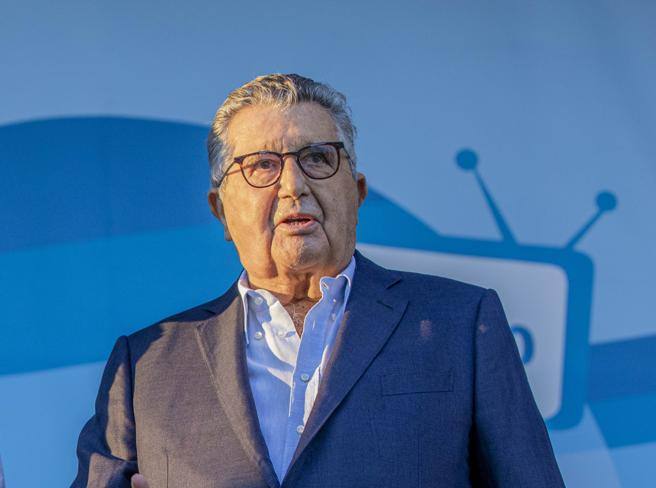His father was rich; he turned that wealth into an empire: Who is Carlo De Benedetti?
Italian entrepreneur Benedetti took the Olivetti company to the top of Europe's computer and office equipment market and subsequently built a financial and economic empire with annual turnover reaching double-digit billions.

Benedetti was born in Turin, the son of a businessman. His father was the manager of a metal factory that produced parts for motor vehicles. After his family of Jewish origin stayed in Switzerland for a short time during the Second World War, the De Benedetti returned to Turin.
Carlo completed his doctorate in electrotechnics at the Technical University here. In 1960, he married his girlfriend Margherita Crosetti and had three children with her.
Carlo De Benedetti (born 14 November 1934) is an Italian industrialist, engineer, and publisher. He is both an Italian and naturalized Swiss citizen. He was awarded the Order of Merit for Labour by the Italian state in 1983, the Medaglia d'oro ai benemeriti della cultura e dell'arte (gold medal of culture and art) and the Legion d'Honneur in 1987.
After completing his military service, De Benedetti joined his family's business. However, many renovation proposals could not be realized here. In 1972, he was provided with a new working area at Gilardini Joint Stock Companies, under the control of his family's holding company.
In the following years, De Benedetti acquired other metalworking factories and founded a company with more than 1,000 employees. De Benedetti, who moved to Geneva with his wife and sons, was appointed chairman of the board of directors of the Turin automobile company FIAT. De Benedetti, an entrepreneur who liked to take risks, aimed to significantly increase the company's balance sheet by purchasing 5% of the initial shares. When his very effective rationalization policy was criticized by the company management, De Benedetti left the company in the summer of 1976.
Before leaving, he sold his own shares at a profit. At the end of the year, he acquired most of the shares of CIR (Compagnie Industriali Riunite), which henceforth became the core of his economic empire. It did not take long for De Benedetti, who was financially strong, to find new investments and areas of duty. It purchased 25% of the shares of Olivetti, an office machinery company in Ivrea (Italy), which was in an economic crisis. In 1978, he became vice president and manager of the company and managed to turn the business into a profit.
In doing so, he increased the company's capital and secured the company's future chances with participation in important technology companies. Apart from these, he proved that the name he acquired as an advocate of a strict rationalization policy was not given to him in vain. Not only did he lay off approximately 20,000 workers, he also changed almost all of the company's management.
Its biggest profit was made in the mid-80s when the American telecommunications giant AT&T joined Olivetti with a 22% subsidiary (until 1989) and the sales of both companies were adjusted accordingly from now on.
After several unsuccessful attempts, including giving up his participation in a Milanese bank after a few weeks, Benedetti managed to enter the food market by joining the firm of the pasta king Buitoni. In order to strengthen his capital base, he converted most of his businesses into joint-stock companies. With the profits he made in the stock market, he took a big step towards his goal of establishing a European holding company that dominates the market.
He bought shares in the French automobile company Valeo and the Mondadori Publishing House in Milan. Olivetti completed the necessary preliminary work to purchase the German office machinery manufacturer Triumph-Adler. De Benedetti laid a solid foundation for himself in the fields of banking and finance, as well as in insurance. When plans to buy the state-owned Italian food company SME failed, De Benedetti left the food industry.
De Benedetti suffered huge losses in the early 90s and had to give up his attempt to take over Belgian SGB Holding. Since Olivetti's marketing situation was not very promising, De Benedetti planned to sell shares and resort to mass layoffs again, but this move was blocked by the Italian government. His agreements with the media market developed more positively. He was able to defend his rights against Italian media giant Silvio Berlusconi, who tried to take control of Mondadori Publishing House. As a result of the agreement between the two parties, De Benedetti secured his presence in the media market by acquiring, among others, La Repubblica, Italy's largest daily newspaper.
De Benedetti admitted in May 1993 that Olivetti had been involved in a wide-ranging bribery and corruption scandal to obtain large orders from politicians. He was released after a short period of detention and house arrest.
